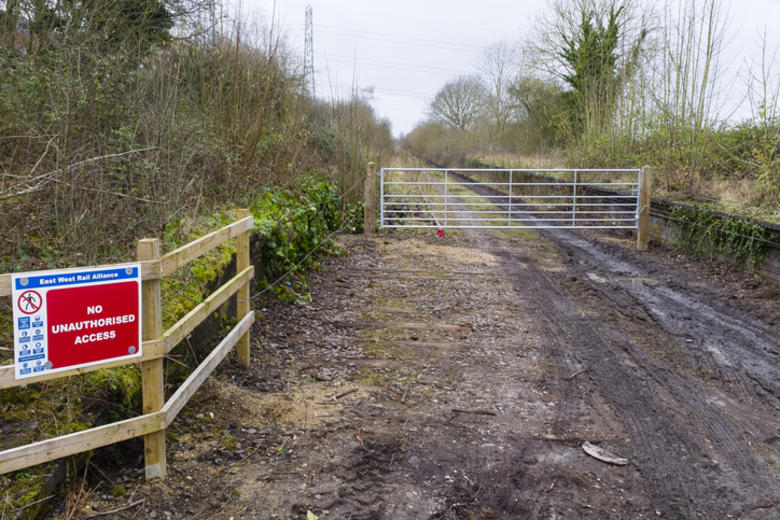OFF THE SHELF: SEPTEMBER 2022

OFF THE SHELF: SEPTEMBER 2022
Punchy short stories, ecocriticism, the assassination of Archduke Ferdinand and an easy-reading encyclopedia
Published: 21 September 2022
Author: Richard Lofthouse
Share this article
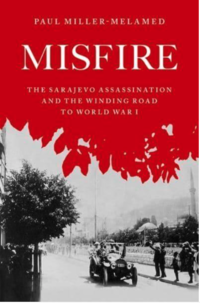
Misfire: The Sarajevo Assassination and the Winding Road to World War I by Paul Miller-Melamed (OUP, 2022)
The author admits that the book missed its deadline by eight years, the original aim being the centenary of the start of World War One. It doesn’t matter. The book is perhaps even more timely in the world of 2022, with a war in Ukraine and lots of other geo-political tensions to contend with. One reason for the delay is that the subject proved terrifyingly complex. The author had to wade through vast amounts of nonsense to reach the bedrock of history. Above all, the assassination of Archduke Ferdinand in Sarajevo in 1914 has been told in the idiom of the famous proverb about ‘For want of a nail the shoe was lost’ ending in ‘…for want of a battle the kingdom was lost. And all for the want of a horseshoe nail.’ In other words, had the head of a tottering empire not been killed, World War One would have been averted, and perhaps the whole horror of the twentieth century! Miller-Melamed returns us from improbable horseshoe nails to historical context, and above all the immediate context of regional discontent within an empire that was ultimately dismembered by the Great War. It’s not a completely easy read but resurrecting the real past as opposed to myth, is like the messy present we all acknowledge from direct experience. Major wars are not ‘caused’ by incidentals, in other words.
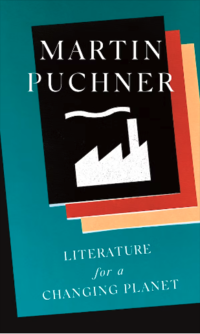
Literature for a Changing Planet by Martin Puchner, Princeton University Press (2022)
There’s been an Oxford-Princeton Alliance since 2001 and this seductive, novella-length hardback arose from a new lecture series jointly sponsored by Oxford and Princeton, delivered recently by Professor of English and Comparative Literature at Harvard, Martin Puchner. Professor Puchner points out that the scientific community has failed to move hearts and minds on climate change, by ‘merely stating the facts’, while storytelling, historically, has been structured within the human world that has caused it. As the product of a settled, sedentary society, as Martin puts it, world literature has typically been complicit with resource extraction, whether by that we mean the leisurely writer dependent on intensive agriculture outside the city gate, or indeed the clay tablet or timber pulp upon which the words are printed. Even the earliest known narratives, such as The Epic of Gilgamesh, have celebrated the built environment over the wilderness, and thus resource extraction. Only since Romanticism, which viewed in the long run is practically yesterday, has the wilderness and nomadism become a source of solace, as something attractive. By putting on ‘ecocritical’ spectacles, and with this very wide focus on world literature in view (how un-Oxford, but how valuable) – ‘…there is no text of world literature which is not also a document of climate change.’ Elsewhere, the author is hugely critical of his own profession for evading history, noting that he had to turn to historians for his starting point, books like Mark Kurlansky’s wildly popular ‘Cod, A biography of the fish that changed the world.’ But he has a wonderful section linking Goethe to Alexander von Humboldt and thence to the original notion of ‘world literature’, but also ecological change over time, not separate from human activity. Another section imagines reactivating the ‘collective agent’ via a discussion of The Communist Manifesto, with COVID-19 in sight, perhaps a bit optimistically, or at least opportunistically. But unlike the historians he can tell a story of his own and does so at the very start, based on a true one of course, about a meteorite that a very long time ago hit earth and killed almost everything. And then several tens of millions of years later bipeds came along – us - and are a rolling version of a meteorite, changing the world far faster than evolution:
‘The realization that humans are responsible for the sixth mass extinction –that we are the new meteorite– is forcing us to consider not only the stories of the past four thousand years but also what stories we tell in the future.’
He isn’t insensible to the marginal role suddenly occupied by the humanities in an age of science and algorithms. But by envisaging new epic story telling that wrestles more convincingly with environmental categories – one thinks immediately of Jonathan Franzen and songbirds – he can spy a tiny bit of light at the end of even that tunnel.
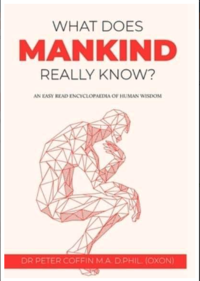
What Does Humankind Really Know? by Dr Peter Coffin (2021)
Here is territory that only a Victorian polymath, an angel or an Oxford alumnus would venture to tread upon, an analysis of absolutely everything in the quest for a summary position on human knowledge. The author, Dr Peter Coffin (St Catherine’s, 1966), has amassed a wonderful range of inquiry after an international career as a scientist, spent interacting with many cultures. He deploys his ‘easy reading encyclopaedia’ through the literary device of an alien, a ‘Zenoid’ called Zac, who organises a conference to try and understand humans. It works. Two summary tidbits to whet the appetite:
‘Zac had soon found that humans do not possess anything equivalent to “Sophology”, a Zenoid academic discipline that aims to provide a global picture for any race of wisdom, knowledge, understanding and beliefs on all existence, the universal environment and purpose of everything.’
‘Zac surmised that a purpose to human existence likely to be shared across the whole human race is the survival of homo sapiens as a species and the survival of life on Earth.’
It is surely an original and well taken point made in this volume, that we don’t know as much as we think we do, and that knowledge has fragmented into sub-categories rather than coalesced into a focus. The bit about species survival is astonishingly close to Martin Puchner’s idea of a reactivated ‘collective agent’ via an ecocritical reading of Marx’s Communist Manifesto, in the volume mentioned above, suggesting that Peter is right on the money.
It feels increasingly as though we stand at the top of an amazing hill. Getting there was a blast, but the view is not the one we had hoped for.
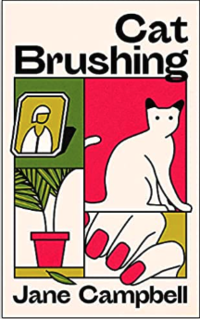
Cat Brushing by Jane Campbell (Riverrun, 2022)
The author (St Hugh’s, 1960) marches boldly through a series of short stories, her debut as a fiction writer, that are spare, eloquent reflections on ageing and go right into areas that no one is conventionally encouraged to talk about, least of all older women. Like sex. But the theme is used to discuss transgression, agency, and loss. Loss of potency, the outrage of getting older and how the world around tries to police and manage older people to suit itself ultimately, such as the daughter-in-law who wants the lovely cat of the title gone, on the spurious basis that it might cause allergies and affect her forthcoming baby. The writing is very good; some of the stories are very short. Short can be devastating, like a punch. They are also snap shots of transience we can all relate to.
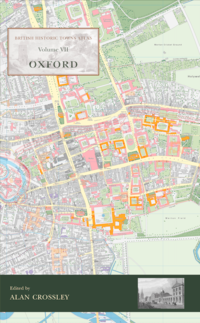
The British Historic Towns Atlas, Volume VII, (Oxford), edited by Alan Crossley. Published by Oxbow Books, December 2021, ISBN 978-1-78925-326-9.
Many years in the making, this volume considers new archival evidence, revealing several strands of new inquiry concerning the making of Oxford. That’s a very short review but it’s a starting place. The editor is an alumnus (St John’s, 1959).
Off the Shelf typically concerns books where there is an Oxford connection, whether the place, the University or of course the author.
Alumni can claim 15% discount in any Blackwell's store with a My Oxford Card.
Alumni can claim 20% discount at Oxford University Press.
Details about the Oxford Alumni Book Club are at: www.alumni.ox.ac.uk/book-club










